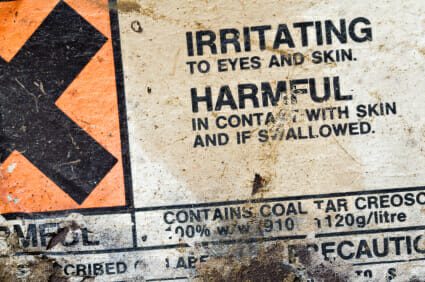Popular Dissolvent that Can Kill Without Warning Remains on Market

A common dissolvent called methylene chloride has remained on the market for more than 50 years with the knowledge that use can cause sudden death.
OSHA Works to Confirm 17th Death in 17 Years
According to Medscape, OSHA linked 17 deaths to workers breathing methylene chloride between 2000 and 2015. OSHA is now investigating another death, that of Kevin Hartley.
Hartley was working for his family’s business when he suddenly collapsed at a Nashville apartment complex in April. Upon finding Hartley, his brother and father began CPR as they waited for paramedics arrived.
Doctors informed Hartley’s family that fumes from methylene chloride, which Hartley was using to refinish a bathtub, had caused his heart to stop. While doctors were able to restart Hartley’s heart, they was no brain activity.
On April 28, Kevin Heartly was pronounced dead at the young age of 21.
Methylene Chloride Can Kill in Under 5 Minutes
Doctors have known about the fatal implications of breathing methylene chloride for more than 50 years – and while the European Union has banned most consumer and professional use, the product remains readily available in the U.S. where home improvement stores sell it by the gallon.
More alarming is the fact that, until this year, the only warning required on the labels of products containing methylene chloride was an alert about potential long-term cancer risks.
The truth is that methylene choloride can kill suddenly and without warning, and as little as 6 ounces can be fatal.
Methylene chloride kills by turning into carbon monoxide upon entering the body. Upon becoming carbon monoxide, the chemical crowds out oxygen in the blood and quickly starves the heart and brain of air. Fatal injuries can occur in as little as 5 minutes.
Prevalence of the Chemical and Proposed Bans
The EPA estimates 1.3 million consumers use methylene chloride products every year. Another 32,000 workers use it on the job. Use of the product has included stripping paint, degreasing food equipment, decaffeinating coffee and tea, and propelling aerosol spray.
The EPA is now pushing to limit the products uses and has proposed a ban on methylene chloride as a paint and coating stripper; however, the proposed rule will take time and may never become law.
In the meantime, experts continue to inform consumers and workers of the potential dangers associated with methylene chloride with OSHA reminding Americans that every death from the chemical is 100% preventable.

